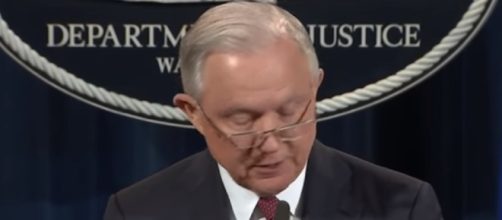President Donald Trump has a firm stance in his opposition to the Deferred Action for Childhood Arrivals Process policy (DACA). Attorney General, Jeff Sessions, gave a speech on Tuesday regarding the opinion of the Trump Administration on the DACA policy, stating the policy was “inconsistent with the Constitutional Separation Of Powers. However, there was no dialogue in Sessions’ speech regarding the economic implications of redacting a policy like DACA; a policy which has supplied the labor market within the United States with approximately 800,000 workers during a labor shortage.
According to Ike Brannon, an economist at the Cato Institute, rescinding former President Obama’s DACA policy could cost the U.S. economy $280 billion over the next 10 years. This would be due to the loss in production of the workers using the H-1B visa (the visa given to workers under DACA) and their spending power. Having legalized immigrant workers means they are taxpayers and must pay into systems like Social Security. Because 91 percent of these workers are actually employed, that means there are approximately 780,000 added people paying into organizations that will benefit American citizens. These numbers only compliment the aid these people bring to the American labor force, which is in need of skilled workers.
The loss of these workers in the U.S. labor market would not be the only negative impact if Trump is successful in doing away with DACA; the cost of removing each of these workers would cost the government approximately $10,000 per person. This would add up to a loss of around $2.5 billion. A loss of this magnitude would certainly have an impact on the U.S. economy, not to mention its effect will be immediately felt by the American general public.
Attorney General Jeff Sessions and DACA
Attorney General Jeff Sessions gave a speech on Tuesday detailing the reasons why DACA cannot be allowed to be a part of U.S. legislation; he outlined the unconstitutionality of its creation as well as its lack of foresight in addressing the issues of the “American people.” This critique was due to the former president's (Obama) use of executive power to pass the amnesty program being perceived as an "overreach" from the former president himself that is "inconsistent with the constitutional Separation of Powers." However, Sessions did not comment on any specific replacement policy for DACA, nor did he give any information on the potential economic impact.
Ignoring the economic implications of terminating a policy like DACA seems to be an oversight of great consequence from our government and the current administration, one that should not be possible from a president who consistently boasts of his economic success. Still, the current president continues to highlight the blame he places on Congress and its inability to prevent the passing of Obama's policy. In a recent post on Twitter, President Trump comments on his expectation for Congress to "address immigration reform" and put "citizens of our country 1st."
Trump offers no insight
Even taking into consideration the new RAISE Act proposed by President Trump, the fate of the nicknamed Dreamers — immigrants who are currently protected under the DACA policy — is questionable.
There is no guarantee that any of the immigrants currently belonging to the amnesty policy will be allowed to stay in the U.S. and the most Trump has offered for information are quick remarks about his big heart and his love for the Dreamers. In other words, he has not offered any insight into the plans his administration has for the immigrant laborers protected by DACA.
I look forward to working w/ D's + R's in Congress to address immigration reform in a way that puts hardworking citizens of our country 1st.
— Donald J. Trump (@realDonaldTrump) September 5, 2017
Although the creation of the DACA policy may have had a questionable upbringing, its impact may be greater than the trump administration would like to admit.
Before the final verdict is given on the amnesty policy, there must be a more careful deliberation as to whether or not rescinding this policy may harm the U.S. economy and, in turn, harm the citizens which President Trump wants to be the first concern in his administration.


